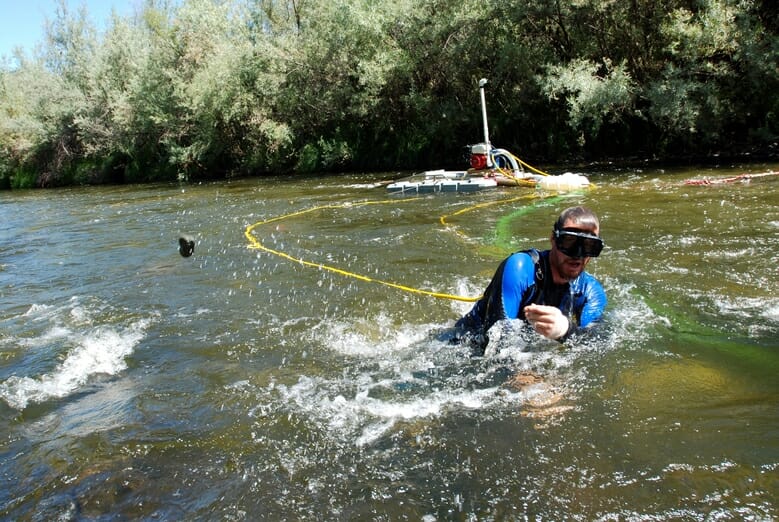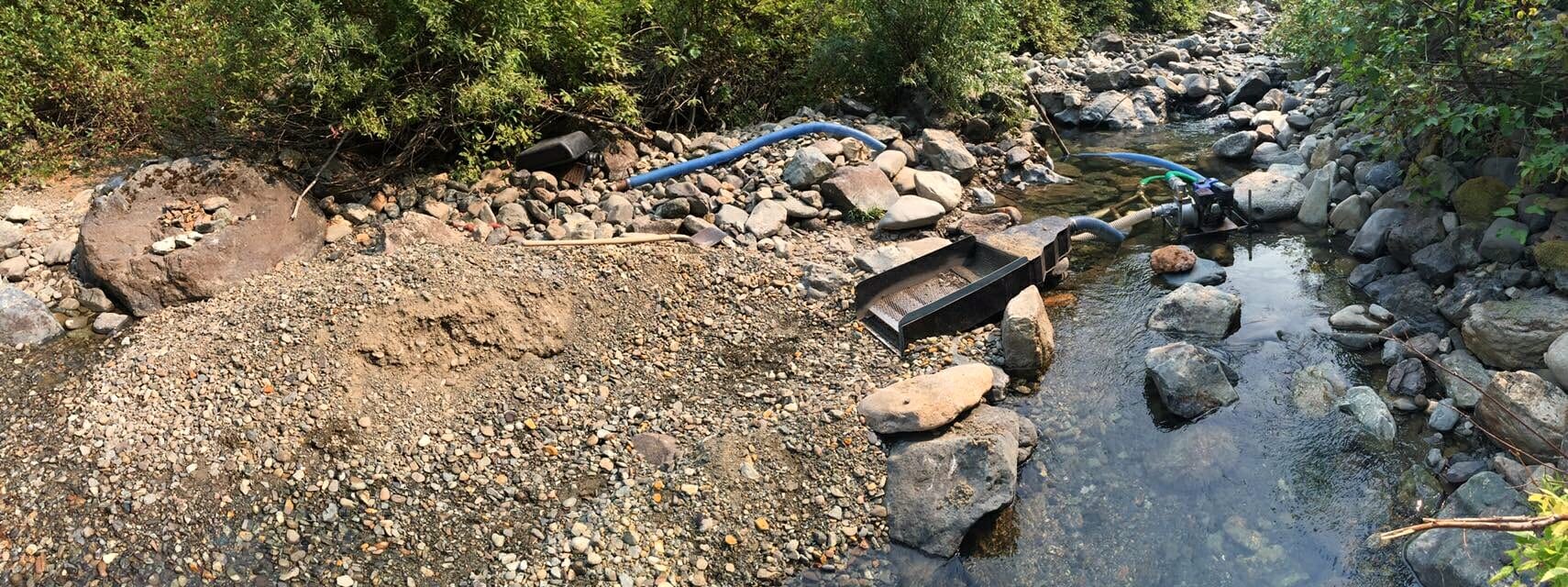The team of Trout Unlimited river-defenders in Washington state is gearing up for a busy legislative session this winter. What they’re after? Getting a bill passed through the state legislature that finally updates Washington laws to remove certain waters (critical habitat for endangered species act-listed fish) from the suite of options for suction dredge miners.
The bill came heartbreakingly close to becoming law last session, so we’re poised to push it over the finish line in the coming months. Some of Washington’s favorite waterways, plus salmon, steelhead and even Orcas are feeling the negative impacts of this activity, and the fix is simple.
Brad Throssel, TU’s Washington Council chair, penned an opinion article that was recently printed by The Seattle Times telling the story of one small stream where this issue has played out in a head-scratching way. It’ll give you a good sense on why the time to act on suction dredging in Washington state is now.
Click here to view the original article in The Seattle Times.
Click here to take action or here to read more on this issue! And then, read on for the post in the Times. Thanks for laying it out, Brad!

SOS: Gold dredging hurts Washington streams
By Brad Throssell Special to The Times
Scotty Creek, a tributary to Peshastin Creek in the Wenatchee River watershed, is hanging on by a thread after one of the driest summers on record — dribbling water slips through cracks between the rocks and boulders while juvenile steelhead hunker down in tiny pools waiting for fall rains to bring relief. Any disturbance to these small pools can injure these tiny, temperature-stressed fish, showing us just how fragile aquatic life can be in these harsh conditions.
Small, headwater streams like Scotty Creek are the lifeblood of the eastern Cascades, especially during the intense heat of summer. These thin ribbons of verdant green shrouding the tiny life-giving creek below cut steadfastly through tinder-dry pine forest, providing critical sanctuaries for wildlife, birds, people, and of course, fish.
The Washington Department of Fish and Wildlife has found that over half of the summer steelhead in the Peshastin Creek watershed, which are listed as threatened under the Endangered Species Act, rely on Scotty Creek and other similar small tributaries.
Fish returning to Peshastin Creek and its tributaries must travel upstream over 500 hundred miles and navigate seven dams to get here, a textbook example of the tenacity and determination of wild fish. Hundreds of millions of dollars have been spent trying to restore critical habitat for steelhead and other listed species like Chinook salmon — which are a critical food sources for our struggling population of southern resident killer whales — throughout the Wenatchee watershed and entire Columbia Basin.
The entire Peshastin Creek watershed including Scotty Creek was permanently closed to fishing by the state Department of Fish and Wildlife after an agency study confirmed this watershed is critical for the spawning and rearing of the once-vibrant Wenatchee run of steelhead.
Washington commonly institutes fishing restrictions to protect vulnerable fish populations, like they did for steelhead in Scotty Creek, but these restrictions, unfathomably, do not extend to a destructive form of recreational gold mining called suction dredge mining.
To suction dredge, miners in SCUBA gear suck-up streambeds with gas-powered vacuums to hunt for gold. Discharge from the dredge machine spits out the back in a plume of turbid water, and what’s left behind are dredge spoils and a river bottom that has been turned upside down. Suction dredging has become increasingly common on Washington’s rivers and creeks because it is now banned or tightly restricted in neighboring states due to its impacts on threatened and endangered salmon and steelhead.
Unfathomably, again, not only is this harmful activity continuing in Scotty Creek this summer, it is still allowed in virtually all Washington waterways, including critical habitat for steelhead and salmon.
Our salmon and the species that depend on them (like our orcas) are on the verge of extinction. We spend hundreds of millions of dollars to save them, yet the state continues to allow suction dredging to unravel the very habitat upon which they depend for survival. At some point, the term ‘unfathomable’ starts to fail in terms of conveying outrage.
Luckily, there’s a fix in the works for the 2020 Legislature. Senate Bill 5322 and House Bill 1261 will ban suction dredge mining in Endangered Species Act-designated critical habitat for salmon, steelhead and bull trout and require Washington to strictly regulate the activity in other waterways.
Please contact your legislators and ask them to vote yes for SB 5322 and HB1261. It is time to respect taxpayer investment in our waterways and fisheries by adding common-sense restrictions to protect them from the impacts of this activity. Failing to make this obvious update to our laws given the fragile status of our salmon and the species that depend on them, like our orca whales, would be unfathomable.
Brad Throssell is chair of the Washington state council of Trout Unlimited, a national nonprofit organization that works to protect, reconnect and restore coldwater fisheries and their watersheds.



